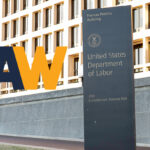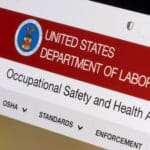On March 8, a federal judge blocked an U.S. National Labor Relations Board (NLRB) rule that would have made it easier for employees and unions to hold companies liable for labor law violations by franchises and contractors.
The rule — issued in October and originally set to take effect March 11 before being struck down by a federal judge in Texas — would have categorized companies as “joint employers” of contract and franchise workers when they have direct or indirect control over working conditions, thus sharing liability and obligations under federal labor law.
“That would treat virtually every entity that contracts for labor as a joint employer because virtually every contract for third-party labor has terms that impact, at least indirectly, at least one of the specified ‘essential terms and conditions of employment,’” the judge wrote according to Bloomberg Law. Those essential terms include pay, scheduling, hiring and supervision.
The joint employers rule would also make it easier for workers to form unions at large companies.
Dive Deeper: Data: 2023 U.S. Labor Strikes Jumped to 23-Year High
Business groups, including the U.S. Chamber of Commerce, have long opposed such a rule. Manufacturing, distribution and related businesses often rely on contractors, and the rule has the potential to “disrupt business-to-business agreements for outsourced labor,” Bloomberg Law reported.
“This ruling is a major win for employers and workers who don’t want their business decisions micromanaged by the NLRB,” said U.S. Chamber of Commerce President and CEO Suzanne Clark in a March 9 statement. “It will prevent businesses from facing new liabilities related to workplaces they don’t control, and workers they don’t actually employ. The U.S. Chamber will continue to fight back against the NLRB and its campaign to promote unionization at all costs.”
Reuters reported that the NLRB is expected to appeal the decision to the New Orleans-based 5th U.S. Circuit Court of Appeals.
The rule blocking comes amid news of an ongoing strike at a Graybar service center in St. Louis.
Related Posts
-
The proposal would increase the salary threshold for guaranteed overtime pay from its current $35,668…
-
A proposed STB rule would make it easier for a shipper served by a single…
-
Pushback has cited the potential for representatives from unions or other organizations to fulfill the…






